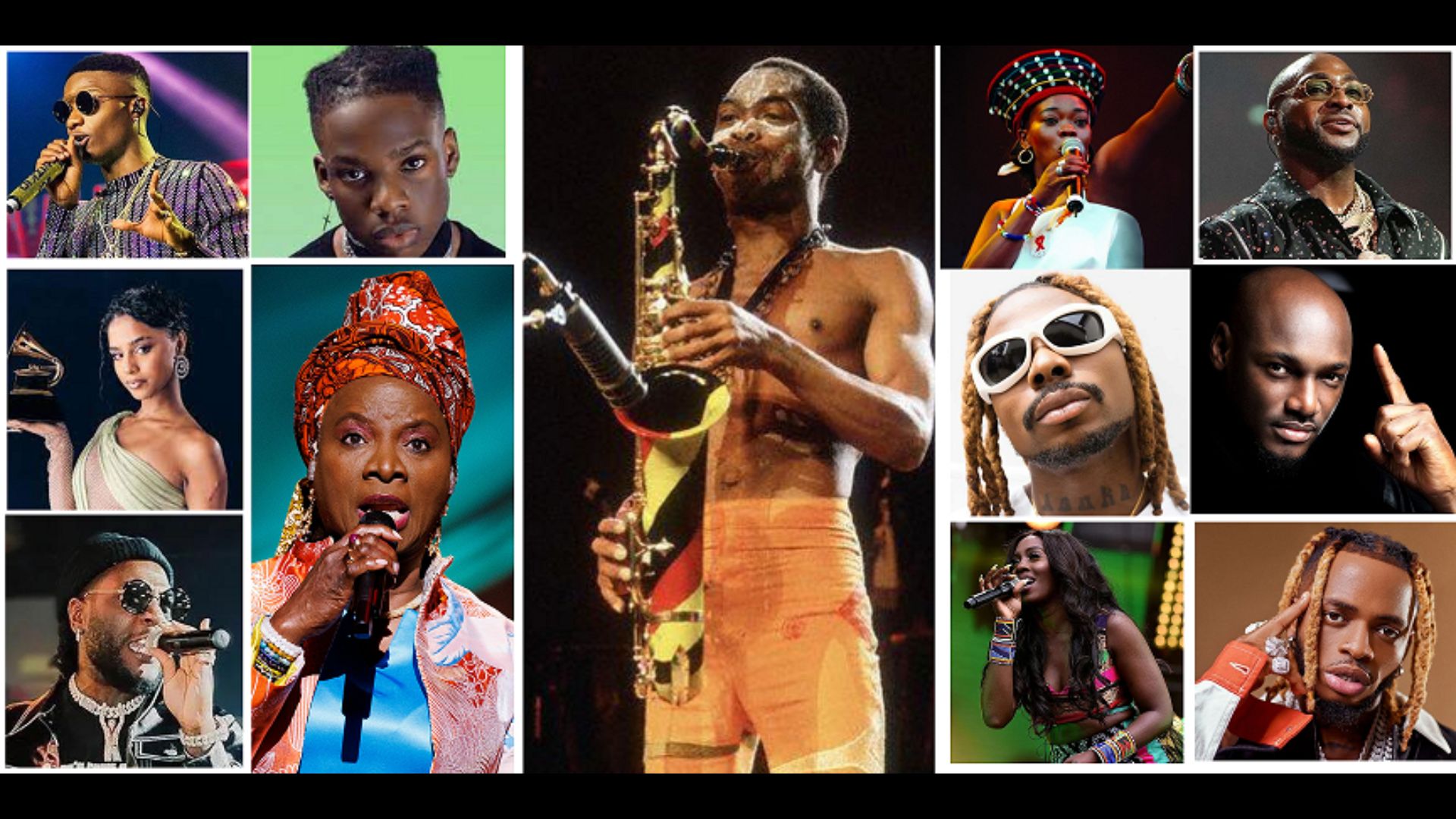ENTERTAINMENT

AFRICA’S SOUND HAS GONE GLOBAL — AND IT’S JUST GETTING STARTED
From the talking drums of Yoruba villages to the Bata rhythms used in spiritual worship, African music has always been more than just sound — it’s been a language, a history book, and a way of life. It told stories, celebrated life, mourned loss, and carried the heartbeat of entire communities.
As late music legend Fela Aníkúlápó Kuti once put it:
“The music of Africa is a big sound — it’s the sound of a community.”
From Margins to the Mainstream
For a long time, global music platforms dismissed African sounds as "too local." But that was then. Now, the rhythm of Africa is moving the world.
In 1966, Miriam Makeba made history as the first African to win a Grammy. Just two years later, Hugh Masekela made it to the Billboard charts with Grazing in the Grass, shaking up the idea that African music couldn’t go global.
Makeba famously said:
“They banned my songs, but not my spirit. I sang for freedom, not fame.”
These pioneers paved the way — and today’s stars are carrying the torch.
Afrobeat to the World
By 2015, the world was dancing to Africa’s rhythm. Wizkid featured on Drake’s ‘One Dance’ and broke global records. His hit ‘Essence’ with Tems became the first Nigerian song to enter the Billboard Hot 100 without any foreign feature.
Burna Boy, proudly calling himself the African Giant, won a Grammy in 2021 and has since sold out Madison Square Garden and performed at the Champions League Final.
His words say it all:
“We’re not crossing over, we’re taking over.”
Rema’s ‘Calm Down’ with Selena Gomez became the most streamed African song ever — now clocking over 1.3 billion streams.
“This isn’t just a win for me,” Rema said. “It’s a win for every African child with big dreams.”
Powered by the Internet
With platforms like Spotify, YouTube, TikTok, and Audiomack, African artists no longer need global labels to shine. Their beats go viral from bedrooms in Lagos, Nairobi, and Johannesburg.
Master KG’s ‘Jerusalema’, born in South Africa, became a pandemic anthem with over 600 million YouTube views.
CKay poured his heart into ‘Love Nwantiti’, a track that topped global charts and connected deeply across cultures.
“They said my sound was too emotional. But emotions are universal,” he said.
From Davido performing at the FIFA World Cup to Tyla winning a Grammy for Best African Music Performance, the wave isn’t slowing down. Tems, Ayra Starr, Asake, and many more are making their mark.
A Seat at the Table
Even international platforms have taken notice. Billboard launched its Afrobeats Chart and recently announced Billboard Africa, a platform dedicated to spotlighting African music and its growing global influence.
As Tems said during her Billboard award speech:
“They didn’t just support our music — they embraced our culture.”
Never Forget the Legends
While new stars break records, the legends — from Fela Kuti to Onyeka Onwenu, King Sunny Ade, Sir Victor Uwaifo, Youssou N’Dour, Osibisa, and others — remain the foundation.
Their voices echo in Amapiano, Afrobeats, Highlife, Makossa, Fuji, and so much more. They built the bridges that the new generation now crosses with pride.
As Nkosiyati Khumalo, the incoming editor of Billboard Africa, rightly said:
“The future of music is African. And that future is now.”
"This represents a significant development in our ongoing coverage of current events."— Editorial Board









